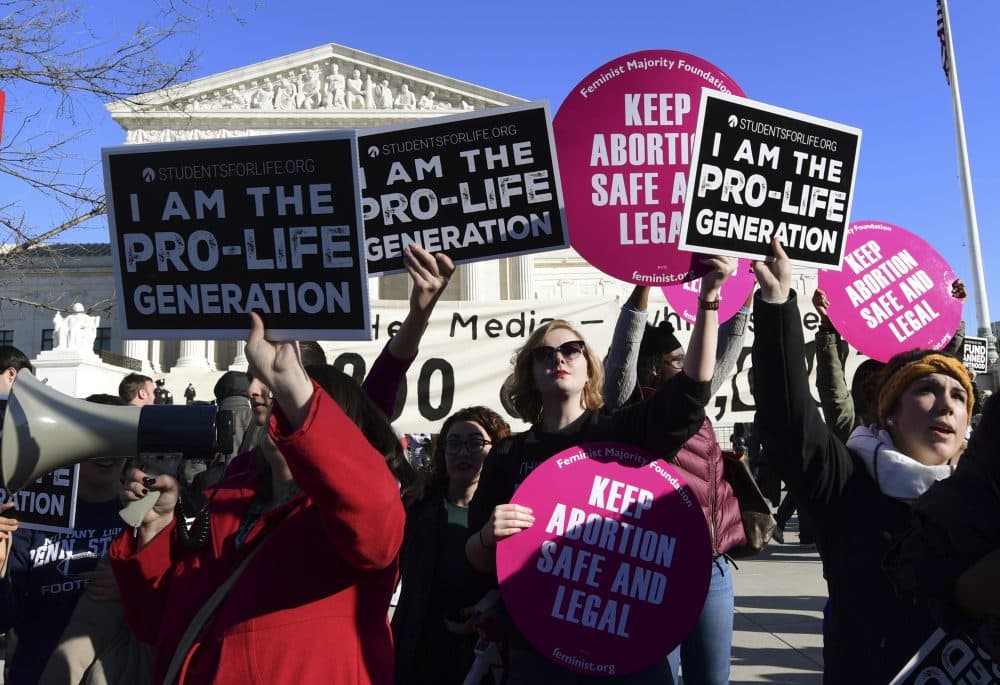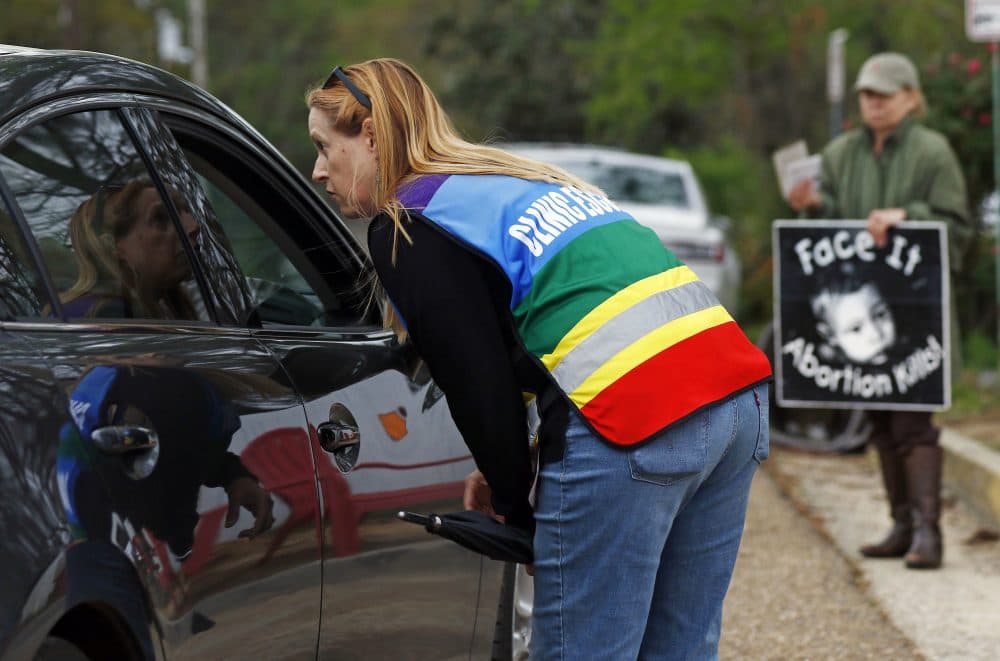Advertisement
Commentary
It’s OK To Be Conflicted About Abortion — You're Not Alone

Rebuking conservative Catholics, Pope Francis last week declared migrants and the poor as worthy of Christian concern as the unborn. It’s a needed reminder to safety net slashers like Paul Ryan (a Catholic), who ignore how, with generous social spending, some nations that allow abortion have less pregnancy termination than countries that ban abortion but lack programs like accessible health care.
Those of us who are both pro-safety net and pro-life were cheered by Francis’s stand. His injunction to love thy post-fetal neighbor gently echoed Barney Frank’s more caustic barb about pro-lifers opposed to both abortion and government welfare: “They believe life begins at conception and ends at birth.”
Meanwhile, I know progressives who welcome the stranger and feed the hungry but regard the anti-choice movement as medieval.
Yet polls show many Americans conflicted about abortion; fewer than 30 percent support it under all circumstances. That hesitance is a sign of rationality, whatever your position, at a moment when this combustible debate refuses to leave the headlines.
(Just three examples: The Senate in January killed a bill to ban the procedure after 20 weeks, while Irish voters and Argentina’s lawmakers may repeal those nations’ bans.)
I understand that ardent pro-choice readers disagree with me. What they may not know is that the rest of the world is not so ardent.
I understand how abortion vexes many, as a Catholic who agrees largely but not completely with my church. I’m against legalizing the procedure except in cases of rape, incest, preserving the mother’s life, or when rare fetal defects will squander health dollars vainly on bringing a pregnancy to term. (Almost all anencephalic babies, for example, die after birth.) To oppose those exceptions, as the church does virtually down the line, strikes me as carrying a principle to an untenable extreme.
Even with those exceptions, wouldn’t restrictions lead to lethal back alley abortions? What about pregnancies from contraceptive failure? Without minimizing the tragedy of the former, I respectfully suggest that both fears are grossly exaggerated.
Ireland’s maternal death rate matches European countries that permit abortion. And even the pro-choice Guttmacher Institute found that U.S. maternal deaths from terminating pregnancy plunged before Roe v. Wade eliminated illicit abortion, thanks to medical advances. That suggests sex education and free contraception could help make rare back-alley mortality even rarer.
Meanwhile, contraceptive failure is scant and dropping (again citing Guttmacher).
I understand that ardent pro-choice readers disagree with me. What they may not know is that the rest of the world is not so ardent.
Many abortion rights advocates here were appalled at that ban-after-20-weeks legislation. Yet among 198 nations and jurisdictions whose abortion laws were reviewed in a pair of 2014 studies, a mere seven permitted the procedure after 20 weeks (though more than that allowed it beyond that time under certain conditions, such as saving the mother’s life).
Sweden imposed limits after 20 weeks; Germany, after 12. Many progressive countries — to which American liberals often compare the U.S. unfavorably in other areas — view unrestricted abortion-beyond-20 as a bridge too far.
Then there’s Iceland, which has almost eliminated Downs syndrome — by eliminating babies with Downs syndrome via abortion, a datum that chills even some pro-choicers.

Not all, of course. Sixty-seven percent of Americans with Downs-diagnosed unborn also abort. In "Pro," Katha Pollitt’s take-no-prisoners defense of abortion rights, the feminist author says much anti-abortion zeal reflects a desire to police women’s bodies and curb their “growing freedom and power, including their sexual freedom and power.”
But the New York Times’s David Leonhardt, surveying Gallup and Pew Research Center polls, finds “remarkably little gender gap on abortion opinion.”
To be sure, there are fanatics on the anti-abortion bench, and not just the lunatics who shoot up abortion clinics. The Atlantic recently and appropriately fired Kevin Williamson, a right-wing writer hired in the name of diversity, for advocating the death penalty for women who abort. Aha! one pro-choicer wrote in Slate, joyful that Williamson supposedly had revealed the pro-life side’s awful logic: “If abortion is murder, tens of millions of American women are murderers.”
I wonder how she’d feel about pro-choice philosopher Peter Singer, who, noting that fetuses and newborns both lack self-consciousness, condones infanticide in some cases. If Singer’s morally correct, that Slate writer must support the killing of some children after birth; after all, it’s the logic of being pro-choice. If he’s wrong, then declaring infanticide her goal is as off-base on my part as pronouncing capital punishment to be my goal is on hers.
“Here is the truth about abortion: It kills an unborn baby,” journalist Damon Linker writes. I agree, which is why I believe the state has an interest in restricting the procedure. Linker, however, is pro-choice, and having read his columns, I understand his position, as I believe he’d understand mine.
Which is more than can be said for many partisans on both sides.
